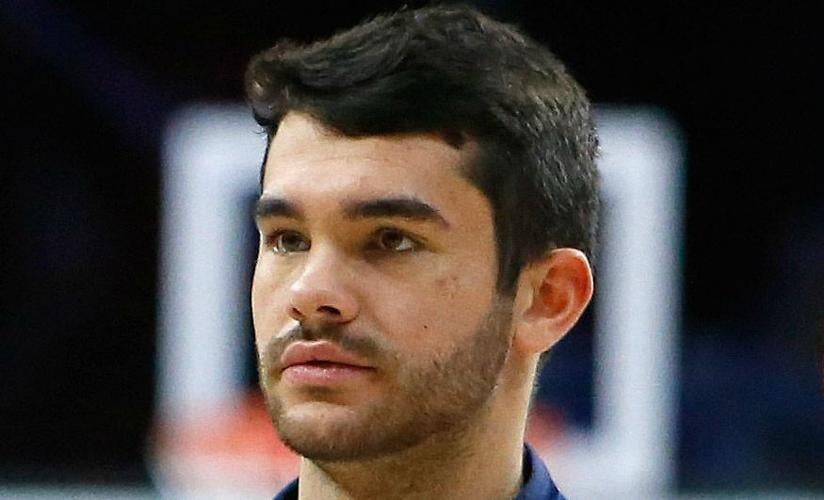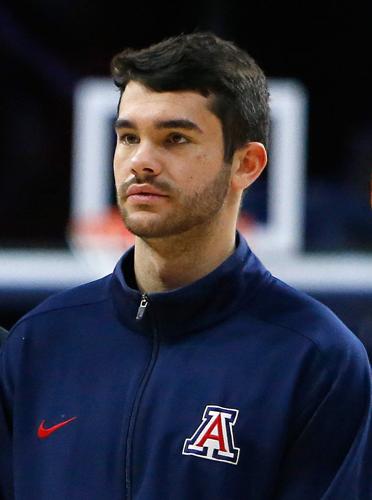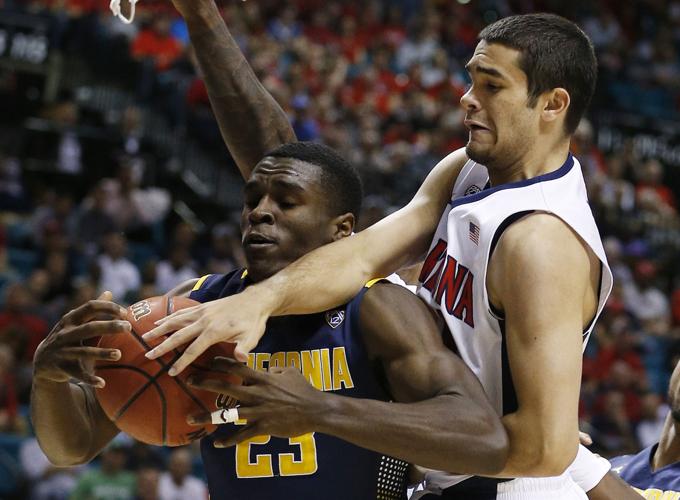Former University of Arizona basketball player Elliott Pitts, said to have quit the team and left school over a “personal issue,” was suspended after a university finding of sexual misconduct and other infractions of student behavioral rules, an internal ruling shows.
The January ruling by the UA bans Pitts from the state university system for one academic year. He was allowed to finish out the academic year before the suspension began.
Pitts, who was not criminally charged in the Dec. 6 incident that led to his suspension, said through his attorney Saturday that the outcome was grossly unfair.
“I categorically deny any allegation or suggestion of sexual misconduct. Both of us were under the influence of alcohol, but we were fully aware of what we were doing,” Pitts said in an email statement given to the Star by Tucson attorney Ali Farhang.
Pitts’ accuser — questioned by campus police officers when she was half-asleep and highly intoxicated — initially indicated their encounter was consensual, said Alan Goodwin, special victims unit supervisor with the Pima County Attorney’s Office.
The patrol officers, wearing body cameras, woke the student and started asking questions before she was fully awake, Goodwin said. The resulting video “would have been Defense Exhibit Number One” had the case gone to court, he said.
“She was two to three times the legal limit to drive when this was happening,” Goodwin said. “She probably needed to sober up some but even if not stone sober, she should have had some amount of time to get her wits about her before she is answering questions.”
Campus police Chief Brian Seastone defended his officers’ actions in an email statement Friday. He said they wanted to check on the student’s welfare after a residence assistant in her dorm called for help.
The university’s investigation was federally mandated under Title IX, a law that protects students from gender discrimination including sexual harassment and sexual violence. It requires schools to investigate such reports regardless of whether criminal charges are filed.
The university based its ruling against Pitts on 25 witness interviews, the results of a sexual assault medical examination of the accuser, and reviews of police reports, text messages and social media posts. The video taken by campus police was among the exhibits, said Farhang, Pitts’ attorney.
Title IX investigations use a lesser standard of evidence than criminal courts to determine wrongdoing. In criminal cases, guilt must be proven “beyond a reasonable doubt.” Title IX cases use a “more likely than not” standard, in which evidence is weighed to determine, on balance, whose version of events is most likely to be true.
Farhang said Pitts didn’t get fair consideration in the UA investigation because of the lesser evidence standard in Title IX cases. He said the system is set up to favor accusers “while disregarding the rights of those accused.”
The UA investigation found Pitts responsible for four violations of the university code of conduct:
- Sexual misconduct, a category that includes sexual violence, non-consensual sex and sexual harassment severe enough to create a hostile environment. It also includes non-consensual photographing or recording of a student engaged in sexual activity.
- Stalking, defined as “repeated or significant behavior toward another individual, whether in person, in writing or through electronic means, after having been asked to stop, or doing so to such a degree that a reasonable person subject to such contact would regard the contact as unwanted.”
- “Endangering, threatening or causing physical harm to any member of the university community or to oneself, causing reasonable apprehension of such harm or engaging in conduct or communication that a reasonable person would interpret as a serious expression of intent to harm.”
- Off-campus conduct that “may present a risk or a danger to the health, safety or security of the board or university community or to the safety or security of the board or university property.”
The one-page ruling, which the UA provided to the student on Jan. 29, does not include any details about what led to each code of conduct violation. Her family shared the ruling with the Arizona Daily Star last week.
The Star isn’t naming her because its policy is not to identify complainants in sex-related cases.
Pitts initially appealed the one-year suspension but agreed to drop the appeal in exchange for being allowed to finish out the semester, Farhang said. Not finishing the semester would have made Pitts ineligible under NCAA rules to transfer to another school to play basketball.
Pitts did not appear in another Wildcats game after the internal investigation began. Men’s basketball coach Sean Miller explained his absence by saying Pitts had stepped aside over a “personal issue.” Pitts left the team for good on Feb. 17.
In May, Miller told reporters Pitts had decided to transfer to another university. “Certainly nobody wishes him well more than me,” the coach said then.
Miller may not have known the details of Pitts’ disciplinary situation as it was unfolding. UA Dean of Students Kendal Washington White said her office is solely responsible for handling student misconduct cases — the athletic department would not be privy to detailed information but may get periodic reports on the progress and outcome of a case, she said.
Miller, athletic director Greg Byrne and university President Ann Weaver Hart would not answer questions for this story.
Pitts’ statement said he and his family “are currently reviewing our legal options.”
“I will vigorously fight to clear my name and prove my innocence,” he said.






